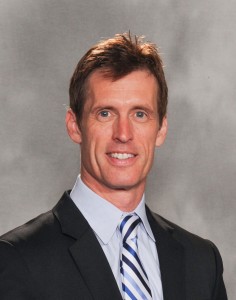One day, I was talking with someone who had been working in poverty law, and she said, “That sounds familiar. I don’t know what they call it elsewhere, but we call it burnout.” I would ask people at the end of the interview if they ever describe this to other people, and if so, how did they talk about. I never got much of an answer.
Explore This Issue
ACEP Now: Vol 37 – No 09 – September 2018I described some concepts that appear in sociology, psychology, health literature, and they’d say, “No, no, no.” Then I added, “So, what about burnout?” “Yeah, that’s it, oh my gosh.” What I was finding was it was really not a psychological concept, but it was something that was really a grassroots sort of thing. The people themselves said this term captured what they were feeling. After that I would use “burnout” at the end of the interview to talk with them about it.
KK: What time frame was this?
CM: This was in the early to mid ‘70s.
KK: Did this prompt you to then do the survey?

Dr. Christina Maslach
CM: Yes. All of that work came out of this original experience. I was doing interviews with different people, and then when possible, I would observe them at work to see what their work day was like. I talked to their colleagues, or we talked to spouses of these people. We were trying to get a sense from people who knew this person, worked with them, and maybe shared the same kind of experiences. Although it wasn’t something that I had intended to do, or that I set out with a mission to define burnout, but once I stumbled over it, it was clear that there was something really important about this.
I had a hard time getting published at first. It wasn’t laboratory research like I had been trained to do. My first article about this was written for a popular magazine called Human Behavior. They published it in 1976, and in an interesting way, that was maybe a better spot for all of the things I did on burnout because that generated tons of feedback. These were snail mail days. Tons of letters and phone calls. People would say, “Oh my gosh. I thought I was the only one. Let me tell you my story.” I just felt I had stumbled upon something that was not well-known, not well-recognized. I was told it was pop psychology. People’s experiences inspired me to continue this work, not to abandon other research I was doing, but to add this focus. After a while, it became more and more the main work that I was doing.
Pages: 1 2 3 4 | Single Page





No Responses to “Dr. Christina Maslach Discusses the Roots of Burnout”